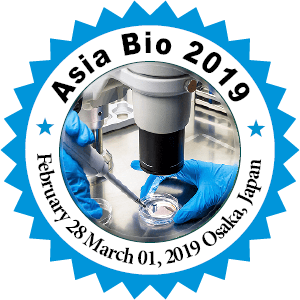
Suliman Al-Fayoum
Al-Fayoumi Consulting, USA
Title: Navigating the biosimilar journey from bench to market: A general overview and case studies
Biography
Biography: Suliman Al-Fayoum
Abstract
Bio similarity is the regulatory term used to denote the comparability between a biosimilar and its reference medicinal product. Regulatory bodies across the world recommend a stepwise approach to demonstrate bio similarity between a proposed medicine and the original biologic product. Biosimilars are required by regulatory authorities to meet strict criteria of quality and comparability to their respective innovator biologic. The nonclinical, clinical pharmacology and clinical requirements tend to be more subjective however, depending on the complexity of the biologic product as well as other nonclinical and clinical considerations. The non-clinical program usually comprises of single and/or repeat dose toxicity studies as well as Pharmaco-Kinetic and Pharmaco-Dynamic (PK/PD) studies in an appropriate animal model. The clinical comparability exercise typically consists of (1) Clinical PK and/or PD studies (2) Comparative clinical efficacy (equivalence design) and safety trial(s) in one or more representative indications (3) Comparable safety profile must be demonstrated. (4) Comparable immunogenicity profiles for the biosimilar and the reference products (5) PVG and RMP. Comparative clinical PK/PD study in lieu of clinical trial may suffice when (1) PK of reference biologic well characterized (2) Adequate knowledge of PD properties/mechanism of action (3) The selected surrogate marker is linked to efficacy (e.g. neutrophil count for G-CSF, early viral load reduction in chronic hepatitis C to assess the effect of alpha interferon and euglycemic clamp test to compare two insulins) (4) There may be PD-markers that are not established surrogates for efficacy but are relevant for the pharmacological action of the active substance and a clear dose-response or a concentration-response relationship has been demonstrated. In this case, a single or multiple dose-exposure response study at two or more dose levels may be sufficient to waive a clinical efficacy study.

